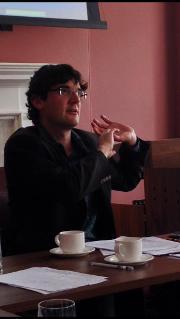Political Philosophy in a Pandemic: Chapter Preview (Adam Swift)
 Several Justice Everywhere authors have been involved in a book project about the ethics and politics of COVID-19. The volume, Political Philosophy in a Pandemic: Routes to a More Just Future (Bloomsbury 2021), is a collection of 20 essays covering five main themes: (1) social welfare and vulnerability; (2) economic justice; (3) democratic relations; (4) speech and (mis)information; and (5) the relationship between crisis and justice.
Several Justice Everywhere authors have been involved in a book project about the ethics and politics of COVID-19. The volume, Political Philosophy in a Pandemic: Routes to a More Just Future (Bloomsbury 2021), is a collection of 20 essays covering five main themes: (1) social welfare and vulnerability; (2) economic justice; (3) democratic relations; (4) speech and (mis)information; and (5) the relationship between crisis and justice.
The second of three chapter previews that we’re releasing in the run up to the book’s publication next week comes from Adam Swift, who contributed a chapter to the final theme on the relationship between crisis and justice. His chapter, Pandemic as Political Theory, takes a step back to consider what the COVID-19 crisis reveals about the nature of politics and political theory in general. (more…)







